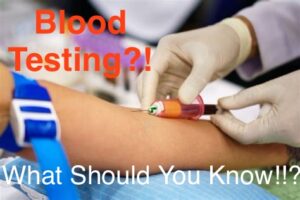
TESTOSTERONE THERAPY AND BLOOD TESTING: WHAT’S NEW AND WHAT SHOULD BE TESTED TO FULLY DIAGNOSE TESTOSTERONE DEFICIENCY?
By Joshua G. Crampton, Founder
If you drive through your suburban town, you’ll notice “Men’s T-Clinics” cropping up on every corner, right next to places like Massage Envy, Starbucks, or 24-Hour Fitness. In fact, if you check Google Maps, you might find that these “Low-T” clinics are popping up almost as frequently as churches, bars, and liquor stores.
RAPIDLY DECLINING TESTOSTERONE IN MEN AND WOMEN
While the rise of these clinics might seem like a solution to the growing problem of declining testosterone, the reality is much more complex. The fact is, men’s testosterone levels have been dropping by about 1% per year since 1965. As a result, the average man today has half the testosterone levels of men from the 1960s.
You can see the difference when you look at old pictures from the 60s and 70s, where people were naturally leaner. Fast forward to 2024, and the average person is noticeably heavier. The United States, once known for its vitality and energy, has sadly become one of the fattest countries in the world.
The rapid expansion of testosterone clinics across the country is a direct response to this crisis. But the question remains:
Are these clinics truly helping, or are they contributing to the problem?
WHAT MOST “LOW-T” CLINICS ARE TESTING FOR:
When you evaluate the blood tests conducted at most “Male T” centers, it’s alarming how limited their scope is. Most clinics only test for testosterone levels, and in some cases, estrogen.
THE ROLE OF TESTOSTERONE IN THE BODY (MALE OR FEMALE)
Testosterone is just one of over 20 hormones in the human body that regulate our physiology. While it’s true that testosterone plays a key role, it is by no means the most powerful or the most disruptive hormone. The reason why many of these clinics focus so heavily on testosterone is simple: it’s easy to promote, easy to sell, and profitable.
These clinics operate on a “Profit-First Model.” They prioritize what’s easy and scalable over what’s best for the patient. Educating patients about the complexities of the endocrine system and the interrelationship between various hormones would be far more involved, and many clinics simply don’t want to go that route.
WHAT PATIENTS SHOULD DO BEFORE SIGNING UP FOR A LOCAL CLINIC:
Before signing up for hormone therapy at any local clinic, potential patients should first research the clinic’s track record. Specifically, look into how many malpractice lawsuits have been filed against the clinic. Unfortunately, many large-scale clinics with multiple locations have the financial resources to handle these complaints by settling lawsuits quietly. This model is profitable for them, but it’s certainly not in the best interest of the patient.
The second step before enrolling at any clinic is to inquire about the blood panels they conduct. If they aren’t testing the entire endocrine system, they cannot accurately diagnose what’s really going on in your body. Failing to test the full system is medically irresponsible and could lead to misdiagnosis and improper treatment.
SIDE EFFECTS AND THE ENDORCRINE SYSTEM:
The endocrine system is incredibly complex and interconnected. It involves multiple hormones working together as part of a cohesive system. When one part of the system is disrupted, the entire system can be affected.
Diagnosing and managing the endocrine system can be challenging because many of the hormones produce overlapping side effects. For example, both thyroid issues and elevated cortisol levels can cause symptoms similar to low testosterone.
Without comprehensive testing of the entire endocrine system, how can anyone be certain that testosterone is the root cause of the problem?
Prescribing testosterone without considering the broader hormonal balance is not only unwise, but it’s also dangerous. It’s negligence, and it should be considered malpractice.
WHAT’S MOST IMPORTANT TO KNOW:
If you’re reading this article, you’re likely considering hormone therapy and want to ensure that you’re making an informed decision. What’s most important is to avoid falling for quick fixes or trendy fads. The endocrine system is both simple and complex. The process is straightforward: test all hormones, prescribe treatments to correct imbalances, and monitor progress every 90 days. Over time, you can achieve optimal balance.
This is what I call “old-school endocrinology”—a simple, effective, and affordable approach to restoring health and wellness.
At MultiGen Wellness, we offer free consultations and an introductory Complex Hormone Panel for just $333.
Click this link to learn more: Hormone Therapy Service For Men & Women in Texas
